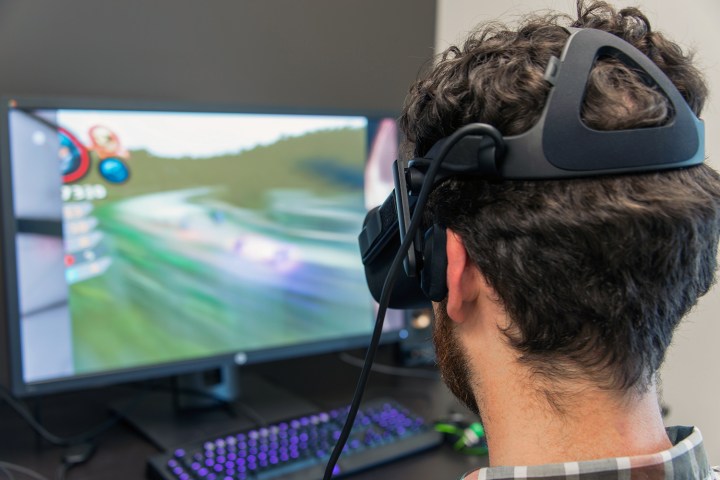
A piece of software called Revive, made by a Github user known only as LibreVR, made it possible to play Oculus Rift exclusives on third party VR headsets including the HTC Vive VR. It’s the VR equivalent of getting Smash Brothers working on an Xbox One. Gamers love it, but it’s not great for the business model.
So naturally, after today’s update to the Oculus App, Revive no longer works, meaning Vive owners have no access to Oculus exclusives purchased from Oculus Home. Titles purchased on Steam, or as standalone titles, continue to work, as do pirated copies of the exclusive titles.
Oculus spent a great deal of money ensuring that the Rift launched with exclusive titles, part of an overall strategy to build an active userbase. But back in December, Oculus founder Palmer Luckey said gamers could mod games to run one on “whatever they want.”
It seems like Oculus, the company, may have changed its mind. The release notes for today’s Oculus App update include reference to “updates to platform integrity checks.” And indeed, it seems like the Oculus software now confirms that a Rift is plugged in before launching any titles, breaking the workarounds used by Revive to get exclusive titles working.
This isn’t a surprise, however. Oculus told users to expect such workarounds to break back in April.
“This is a hack, and we don’t condone it. Users should expect that hacked games won’t work indefinitely, as regular software updates to games, apps, and our platform are likely to break hacked software,” Oculus told Ars Technica at the time.
At the same time, hacks tend to reappear, and work has already begun on a new way to bring Rift titles to other headsets. There’s a chance that, even with these updates, LibreVR will get Revive working again. In the meantime, there are plenty of great titles on Steam that work with the HTC Vive.
Editors' Recommendations
- HTC just fixed a major shortcoming of standalone VR headsets
- Two new ‘game-changing’ VR headsets could arrive at HTC’s ViveCon next week
- The best VR-ready laptops you can buy right now
- Oculus Quest vs. Oculus Rift
- Apple reportedly working on an AR headset with Vive-like controllers


